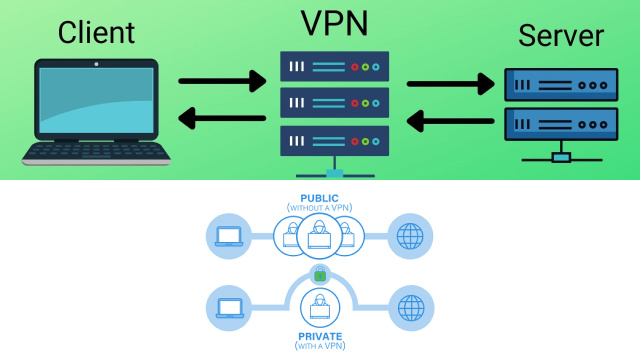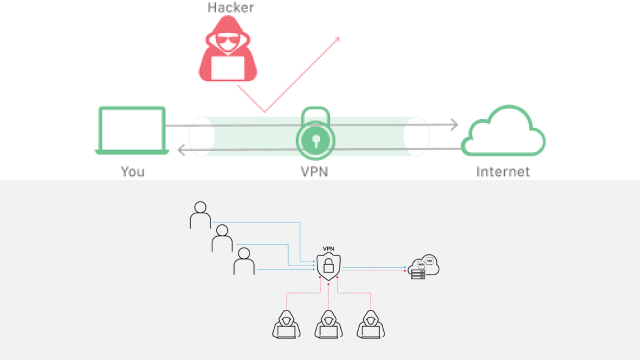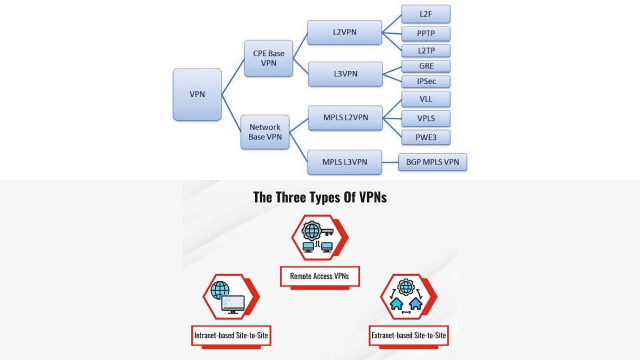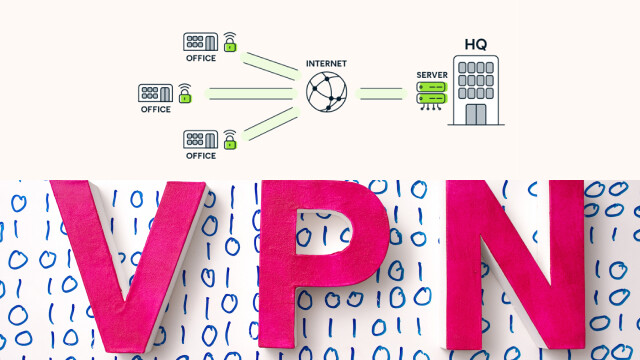Understanding the Meaning of VPN
VPN stands for Virtual Private Network. It’s a technology that allows you to create a secure and private connection over the internet. When you use a VPN, your device connects to a remote server that acts as an intermediary between your device and the internet. All the data that you transmit over the internet is encrypted, so it’s not visible to anyone who might be monitoring your connection.
One of the main benefits of using a VPN is that it helps to protect your online privacy and security. When you use a VPN, your internet service provider (ISP) can’t see what you’re doing online, and websites can’t track your location or IP address. This can be particularly useful if you’re using public Wi-Fi, which can be vulnerable to hacking and other security threats.

In addition to providing enhanced privacy and security, VPNs can also be used to bypass internet censorship and geo-restrictions. For example, if a website is blocked in your country, you can use a VPN to connect to a server in a different location and access the website as if you were located in that country.
How Does VPN Work?
VPN, or Virtual Private Network, is a tool used to create a secure and private connection between two or more devices over the internet. VPN works by creating a secure tunnel between the user’s device and a remote server, through which all internet traffic is routed. This connection is encrypted, making it difficult for anyone to intercept or spy on the data being transmitted.
When a user connects to a VPN server, the server assigns them a new IP address, which masks their actual IP address. This new IP address is often located in a different location, allowing the user to bypass geographical restrictions and access content that may be restricted in their country.

VPN technology uses various protocols to ensure the security and privacy of data transmitted over the internet. Some of the common VPN protocols L2TP/IPsec, and PPTP. Each protocol has its own unique set of features and capabilities, and users can choose the one that best suits their needs.
Overall, VPN provides a secure and private internet connection that can be used to protect sensitive data, bypass internet censorship, and access restricted content.
Benefits of Using VPN
A VPN or virtual private network is a tool that allows you to connect to the internet through a secure and private network. There are several benefits to using a VPN, including enhanced online privacy and security. When you use a VPN, your internet traffic is encrypted and routed through a secure server, making it difficult for anyone to track your online activities or steal your data. This is particularly important when using public Wi-Fi networks, where your data could be vulnerable to hackers.
Additionally, using a VPN can allow you to access content that may be restricted in your region. By connecting to a VPN server in a different country, you can bypass geo-restrictions and access content that may not be available in your location. This is particularly useful for streaming services like Netflix or Hulu, which have different libraries of content depending on where you are in the world.
Overall, using a VPN can provide you with enhanced privacy and security while also allowing you to access a wider range of online content.
Risks of Using VPN
While using a VPN can offer many benefits, there are also risks involved that users should be aware of. One of the primary risks is the false sense of security that using a VPN can create. While a VPN can encrypt your data and mask your IP address, it doesn’t necessarily guarantee your online privacy and security. Some VPNs can still track and store your online activities and personal information.
Another risk is that some VPNs can potentially slow down your internet connection, making it difficult to stream content or engage in online activities. Additionally, some free VPN services may not be trustworthy and may collect and sell user data to third parties.
Moreover, using a VPN to engage in illegal activities does not protect you from being caught by law enforcement agencies. Lastly, some countries have banned the use of VPNs altogether, which means using one can be illegal in certain regions.
Therefore, while VPNs can provide many benefits, it’s important to use them with caution and choose a reputable and trustworthy service to avoid these potential risks.
Different Types of VPN
A Virtual Private Network (VPN) can be classified into different types, each with its unique features and advantages. The most common types of VPN are remote access VPN, site-to-site VPN, and mobile VPN.
Remote access VPN allows individual users to securely access a private network from a remote location. This type of VPN is commonly used by remote workers, providing them access to the resources of the company network.
Site-to-site VPN, also known as router-to-router VPN, allows multiple networks in different locations to connect securely over the internet. This type of VPN is typically used by companies with multiple offices or data centers.

Mobile VPN is designed to provide secure connectivity for mobile devices, allowing users to connect to a private network while on the go. This type of VPN is commonly used by organizations that have employees who travel frequently.
Other types of VPN include SSL VPN, IPsec VPN, and PPTP VPN. Each type has its own set of protocols and encryption methods that provide different levels of security and functionality. It is important to choose the right type of VPN that fits your specific needs and requirements.
Choosing the Right VPN for Your Needs
Choosing the right VPN for your needs is important to ensure your online privacy and security. There are many factors to consider when choosing a VPN, such as server locations, speed, encryption strength, logging policy, and compatibility with your device.
If you need a VPN for streaming or downloading, you should look for a provider with a large number of servers in different locations and fast connection speeds. If you are concerned about online privacy, you should choose a VPN with strong encryption and a strict no-logs policy.
Compatibility with your device is also important, so make sure the VPN is compatible with your operating system and devices. Some VPN providers offer dedicated apps for different devices, which can make it easier to use.
Finally, it is important to consider the price and the level of customer support provided by the VPN provider. Some VPNs offer free trials or money-back guarantees, which can help you test the service before committing to a subscription.
Setting Up and Using VPN
Setting up and using a VPN is a simple process, but it can seem daunting if you have never done it before. First, you need to select a VPN provider that suits your needs and sign up for their service. Once you have done that, you will need to download and install the VPN app on your device. Most VPNs have apps for Windows, Mac, iOS, and Android.
After you have installed the VPN app, you will need to launch it and sign in using your credentials. Then, you will need to select a server location and connect to the VPN. Some VPNs have an automatic server selection feature that will connect you to the fastest server in your preferred location.
Once you are connected to the VPN, all of your online activity will be encrypted and routed through the VPN server, providing you with an added layer of security and privacy. You can now use the internet as you normally would, knowing that your data is safe from prying eyes. When you are done using the VPN, simply disconnect from the server by clicking the disconnect button in the app.
Frequently Asked Questions About VPN
Virtual Private Network (VPN) technology has become increasingly popular in recent years, but many people still have questions about how it works and how to use it effectively. Here are some common questions and answers about VPN:
- What is a VPN, and why do I need it? A VPN is a tool that allows you to create a secure and encrypted connection to the internet, which can protect your online privacy and security, especially when using public Wi-Fi networks.
- Are VPNs legal? Yes, VPNs are legal in most countries. However, some countries have restrictions on VPN use, so it’s essential to research the laws and regulations in your region.
- Can VPNs be hacked? While no technology is entirely immune to hacking, a reputable VPN provider will implement security measures to protect against hacking attempts.
- How do I choose a VPN provider? When choosing a VPN provider, look for one that prioritizes privacy and security, has fast connection speeds, and offers servers in locations that meet your needs.
- Can VPNs slow down my internet connection? Using a VPN can sometimes result in slower internet speeds due to the encryption process. However, a high-quality VPN provider will minimize the impact on your connection speed.

By understanding the basics of VPN technology and using it properly, you can protect your online privacy and security while enjoying a more open and accessible internet experience.